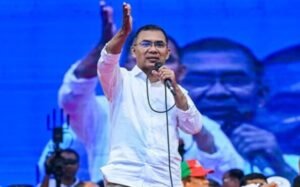BJP waging propaganda war to hide real issues, says Navjot Sidhu

CHANDIGARH: Congress leader Navjot Singh Sidhu Monday accused the BJP-led centre of politicising the Indian military and unleashing upon the country a “propaganda war” for the sole purpose of hiding actual issues affecting the people ahead of the Lok Sabha elections.
“Stop politicising the army for your political motives. Army is as sacred as the state! Stop deflecting the real issue, they will come back to haunt you. Job loss, Black money, 1708 terrorist acts, NPAs, Farmer Suicides. All this gone, because your ‘so-called’ propaganda war is on…” he tweeted, citing a few quotes by historical personalities – including Unitarian preacher William Ellery Channing and late United States President James Madison – to illustrate how war rhetoric can be used as an effective tool to silence people as well as the political opposition.
Earlier today, the Punjab Minister had questioned the motive behind government sources initially suggesting that 300 Jaish-e-Mohammed (JeM) terrorists were killed in the Indian Air Force strike on Pakistan’s Balakot on February 26. The claim was later rejected by military authorities, who said it was premature to arrive at such an estimate. “300 terrorists dead, Yes or No? What was the purpose then? Were you uprooting terrorists or trees? Was it an election gimmick? Deceit possesses our land in the guise of fighting a foreign enemy,” he tweeted, reiterating that the Modi government should stop politicising the army because it is “as sacred as the state”.
BJP president Amit Shah had claimed during a rally in Gujarat yesterday that “more than 250” terrorists were killed in the air strike, becoming the first leader of the ruling party to put a figure on record amid questions raised by the opposition.
Mr Sidhu has been an active proponent of dialogue with Pakistan, terming it as the only “long-term” solution to tackling terrorism. Following the death of 40 CRPF soldiers at the hands of a JeM suicide bomber in Pulwama on February 14, he had said that it was unfair to blame an entire country (Pakistan) for the crimes of a “handful”. While the cricketer-turned-politician was widely criticised for the comment, his colleagues in the Punjab cabinet maintained that he had said nothing wrong.



